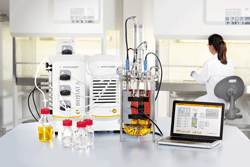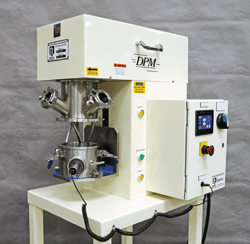
OR WAIT null SECS
- About Us
- Advertise
- Contact Us
- Editorial Info
- Editorial Advisory Board
- Do Not Sell My Personal Information
- Privacy Policy
- Terms and Conditions
© 2026 MJH Life Sciences™ , Pharmaceutical Technology - Pharma News and Development Insights. All rights reserved.
The Bio/Pharma Working Life
Professionals share the ups and downs of working in the bio/pharma industry.
According to the industry group PhRMA, the average annual total compensation for biopharmaceutical workers in 2011 was $110,490, almost twice the average salary earned by all US workers (1). An American Association of Pharmaceutical Scientists survey lists the mean annual base salary for pharmaceutical scientists in the US, as of July 2014, as $143,800 (2).
On paper, these salary numbers are impressive. However, the number of research, development, manufacturing, sales, and other positions eliminated in the bio/pharma industry, more than 155,000 since 2009 (3), is sobering. What is the current employment picture for those professionals working in the bio/pharmaceutical development and manufacturing segments? In this issue, the editors of Pharmaceutical Technology address employment, compensation, workload, training, and other factors in our annual employment survey on pages 20-23.
Here are some key results:
- Almost 54% of the respondents are contracted to work 40 hours per week; nearly three-quarters of those surveyed say they work more than 40 hours.
- The positions require a variety of skill sets, including knowledge of regulatory practices, chemistry, analytical techniques, and statistics.
- The respondents were experienced: 66% have more than 15 years of experience in the industry.
- For the most part, the respondents are not impressed with the training for people newly hired for the industry; 78% said the new hires were adequately trained, but not exceptional.
- More than 60% reported a salary increase from 2013 to 2014, Of the 50% of the respondents who received a bonus, one-quarter received larger bonuses than the previous year.
- More than 80% received at least two weeks of vacation time; however, 80% of the respondents said they spent at least part of their vacation time doing work.
In evaluating factors other than compensation, more than three-quarters of the respondents said they did not experience discrimination; their skills were used to the fullest extent; and their work was valued by their employer. Some respondents, however, saw limited opportunities for professional development (35%) and career advancement (40%).
When considering a job change, salary is the top consideration, respondents report, followed by professional advancement and job security. Intellectual challenge and work/life balance are other top considerations.
Salary is not the main reason respondents come to work, however. Challenging projects, intellectual stimulation, a good work/life balance, supportive management, and job security were the top reasons cited.
Overall, the respondents were tolerant of negative workplace factors; less than 15% percent identified a specific factor as a reason to quit their job. Low pay was the second leading contributor to job dissatisfaction, behind budgets that are too low to accomplish tasks. Negative workplace attitudes, issues with management, and discrimination were other top concerns.
On behalf of the Pharmaceutical Technology team, I thank all bio/pharmaceutical professionals for their contributions to the industry and extend our best wishes for a prosperous and successful 2015.
References
1. PhRMA, “The Biopharmaceutical Industry Helps Strengthen the U.S. Economy”, www.phrma.org/economic-impact, accessed Nov 24, 2014.
2. AAPS, 2014 Annual Salary Survey, (Arlington, VA, 2014).
3. P. Loftus, M. Falconi, H. Plumridge,“In Drug Mergers, There’s One Sure Bet: The Layoffs”, Wall Street Journal, April 29, 2014, accessed Nov. 24, 2014.
Article Details Pharmaceutical Technology
Vol. 38, Issue 12
Page: 12
Citation: When referring to this article, please cite it as R. Peters, "The BioPharma Working Life," Pharmaceutical Technology 38 (12) 2014.



